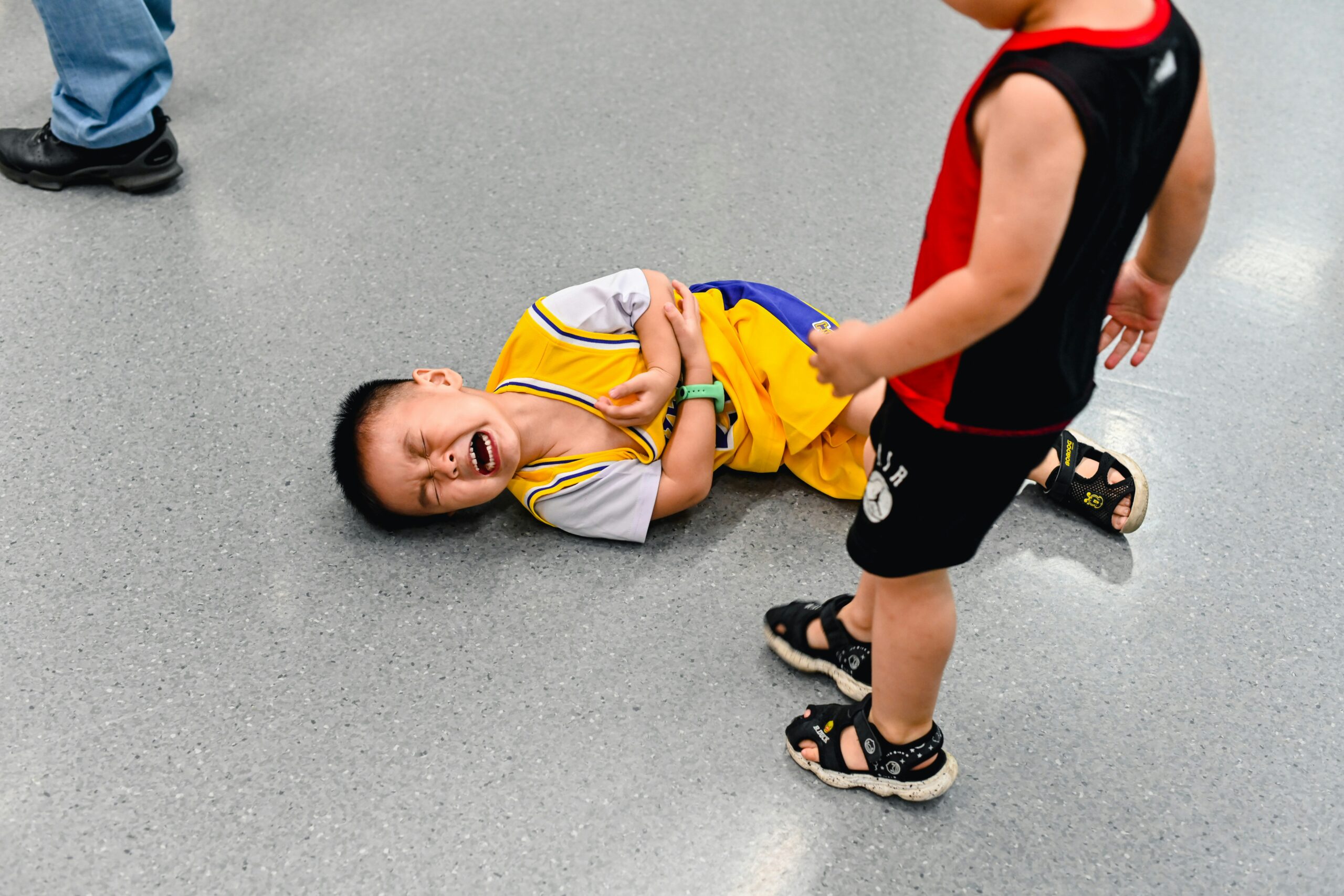Every parent dreads the moment when their child is hurt by another. What to do if another child hits my child? This question can leave you feeling anxious and unsure of the best course of action. Handling such situations with calmness and confidence is crucial for both you and your child’s well-being. Here, we provide seven empowering ways to respond when another child hits your child, ensuring you manage the situation effectively and support your child through it.
1. Stay Calm and Assess the Situation
Remaining calm is the first and most important step.
- Take a deep breath: Avoid reacting impulsively.
- Assess the situation: Observe what happened and determine the severity of the incident.
- Stay composed: Your calm demeanor will help soothe your child and prevent escalation.
2. Comfort Your Child
Your child’s immediate emotional and physical needs should be your priority.
- Provide comfort: Hug your child and reassure them that they are safe.
- Check for injuries: Make sure there are no significant physical injuries.
- Listen: Allow your child to express their feelings and acknowledge their emotions.
3. Address the Other Child Calmly
It’s important to address the child who hit your child in a composed manner.
- Speak softly: Use a calm and gentle tone.
- Set boundaries: Clearly state that hitting is unacceptable.
- Seek understanding: Ask the child why they hit to understand the cause and resolve underlying issues.
4. Talk to the Other Parent or Caregiver
Engaging with the other child’s parent or caregiver can help resolve the situation.
- Approach respectfully: Be polite and non-confrontational.
- Explain the incident: Describe what happened and express your concerns.
- Collaborate on a solution: Work together to prevent future incidents.
5. Teach Your Child Conflict Resolution
Equip your child with the skills to handle conflicts peacefully.
- Role-play scenarios: Practice ways to respond to aggressive behavior.
- Encourage verbal expression: Teach your child to use words to express their feelings.
- Promote empathy: Help your child understand others’ perspectives and emotions.
6. Monitor the Situation
Keep an eye on future interactions to ensure your child’s safety.
- Stay vigilant: Observe your child’s interactions with others.
- Check-in regularly: Ask your child about their day and any issues they may face.
- Communicate with caregivers: Maintain open communication with teachers and caregivers about your child’s social interactions.
7. Seek Professional Help if Necessary
If the behavior persists or if your child is significantly affected, consider professional support.
- Consult a counselor: A child psychologist can help your child process their emotions.
- Join a support group: Connect with other parents who have faced similar issues.
- Educational workshops: Attend workshops on child behavior and conflict resolution for additional strategies.
Conclusion
Knowing what to do if another child hits my child can empower you to handle such situations with confidence and care. By staying calm, comforting your child, addressing the issue constructively, and teaching conflict resolution skills, you can help your child navigate these challenging experiences. Remember, your response plays a crucial role in shaping your child’s ability to deal with conflicts in a healthy and positive manner.
FAQs
1. What should I avoid doing when another child hits my child?
Avoid reacting with anger, blaming the other child harshly, or ignoring the incident. Stay calm and address the situation constructively.
2. How can I teach my child to defend themselves without being aggressive?
Encourage your child to use words to express their feelings, seek help from an adult, and walk away from the conflict if possible.
3. When should I seek professional help for my child?
Seek professional help if your child shows signs of significant emotional distress, anxiety about social interactions, or if the aggressive behavior persists.
4. How can I prevent such incidents in the future?
Maintain open communication with caregivers and teachers, encourage positive social interactions, and teach your child conflict-resolution skills.
5. What if the other parent is uncooperative?
Stay calm and try to find a resolution, but if the other parent is uncooperative, consider discussing the issue with a teacher, school counselor, or other appropriate authority.




